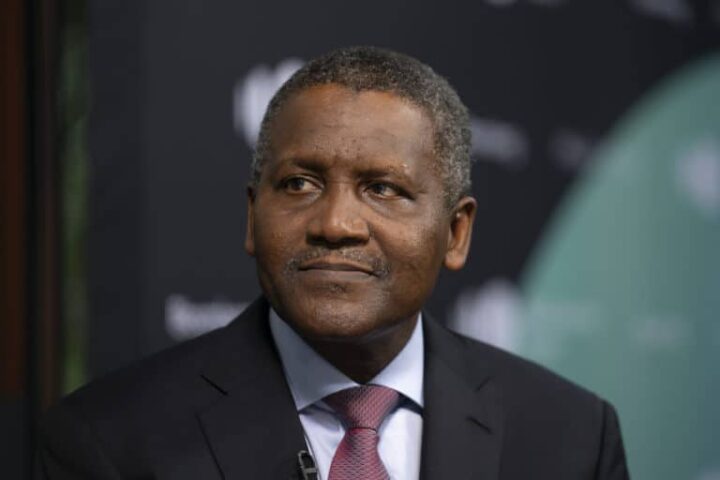Nigeria’s electricity sector has once again come under intense scrutiny following a bold statement by billionaire industrialist Aliko Dangote, who asserted that the nation ought to be generating 60,000 megawatts (MW) of electric power. With average grid output barely stretching between 4,000 and 5,000 MW, Dangote’s declaration shines a spotlight on the yawning gap between Nigeria’s enormous energy potential—anchored in its fossil fuel reserves and renewable resources—and its meager actual output.
Speaking during private discussions with industry insiders and stakeholders, Dangote emphasised the vast mismatch. Despite Nigeria’s theoretical capability to produce tens of thousands of megawatts via its oil, gas, hydro, solar and wind resources, actual grid supply remains painfully inadequate. He noted that power output rarely exceeds 5,000 MW even during peak periods, a shortfall that forces businesses, households, and government agencies to rely heavily on expensive diesel generators and captive plants.

According to Dangote, the energy shortfall represents more than just a technical deficiency—it cripples the nation’s industrial growth and economic development. “If Nigeria cannot guarantee stable electricity supply, we are undermining our ability to compete globally,” he warned. Citing his own enterprise’s investment, he disclosed that the Dangote Group produces about 1,500 MW from its independent power plant. That capacity alone exceeds the additional power added to the national grid over the past decade.
Power experts argue that this is no extravagance. Under the current fragmented structure, nearly 250 licensed companies maintain captive power facilities generating a cumulative 6,500 MW. While commendable, this dispersion reveals the failure of the national grid—still unable to efficiently supply even half that amount reliably. As a result, small businesses, startups, and ordinary households remain excluded from grid benefits, even as corporate giants absorb their own power costs.
Analysts maintain that achieving 60,000 MW—an ambitious benchmark discussed in some national energy roadmaps—would propel Nigeria into a transformative growth zone. Such scale would support large-scale industry, manufacturing hotspots, export-oriented enterprises, and widespread household electrification. Dangote urged a sweeping energy blueprint that aggressively mobilises capital across large gas-to-power plants, hydropower facilities, solar farms, and wind farms.
He warned, however, that reaching this milestone requires more than just funding. It will demand regulatory reforms, strengthened institutions, and public-private partnerships underpinned by robust governance and accountability. Projects must be politically protected, tariffs set transparently, and incentives structured to attract international development funding. Without these enablers, fossil-fuel based captive generation will remain the default, perpetuating inefficiency and inequity.
Dangote also challenged the sector’s leadership to put metering and demand-side reforms at the forefront. “Smart metering, load-reflective tariffs, and time-of-use systems are critical,” he contended. “Billing must align with consumption; otherwise, distribution revenue will continue to suffer and limit reinvestment.”
Nigeria’s electricity conundrum affects virtually every aspect of life. Manufacturers cite unreliable power as a reason for loss of competitiveness, as supplemental costs on diesel and inverters elevate production costs. Telecoms firms maintain backup systems to ensure uptime, increasing capital and operational burdens. For those in rural and peri-urban areas, access remains largely intermittent or absent, hindering socio-economic inclusion.
Political leaders and regulators have responded by rolling out policy pronouncements aimed at capacity expansion, grid modernisation, and unlocking private investment. A new roadmap envisions incrementally raising installed capacity to 6,000 MW in the medium term, with longer-term ambition stretching toward the 60,000 MW threshold. But until these targets are backed by committed funding, institutional clarity, and enforcement, promises risk faltering.
Economists note that hitting 60,000 MW would unleash manifold economic benefits. Industrial clusters would thrive, digital economy infrastructure could expand rapidly, SMEs could scale, and foreign direct investment would increasingly flow into power-reliant sectors. Improved electricity coverage would enhance education, healthcare, and other social services by stabilising operating conditions for essential services.
Before reaching for this lofty number, however, the power sector must address foundational issues: ageing transmission lines, rampant vandalism, meter fraud, tariff distortions, and regulatory uncertainties. Dangote emphasised that without resolving these systemic challenges, even minor capacity expansions may fail to deliver meaningful impact.
Reflecting on his group’s own experience, Dangote recounted that only after overcoming regulatory delays, integrating standby metering, securing feedstock, and establishing long-term offtake agreements did their power plant deliver reliable on-site generation. Scaling that model to the grid requires system-wide change, not piecemeal efforts.
Despite the enormity of the target, Dangote insisted that the objective is attainable—but only through collective resolve. He called on the government, regulators, investors, and development partners to view the 60,000 MW ambition as a bottom-line requirement for national competitiveness—not a luxury aspiration.
“If we fail to tackle power, we fail Nigeria’s future,” he stated. “But if we commit to this vision, transform regulation, and build responsibly, we can shift from constant crisis to power abundance.”
With his influence and industrial heft, Dangote’s pronouncement carries weight. Whether it triggers acceleration in policy, finance, and implementation remains a test for the energy ecosystem. His challenge is clear: either Nigeria confronts its power deficit decisively—or remains trapped in a cycle where potential is dimmed by darkness.
Support InfoStride News' Credible Journalism: Only credible journalism can guarantee a fair, accountable and transparent society, including democracy and government. It involves a lot of efforts and money. We need your support. Click here to Donate
